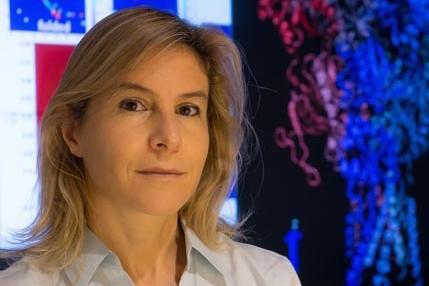Mentoring Social
As a part of the WiML Un-Workshop at ICML 2021, on July 21, 2:30 - 3:30 pm EDT, we will host a Mentoring Social, virtually on GatherTown.
The social includes six mentoring roundtables hosted in parallel, where the mentors will target a diverse set of non-technical topics, such as advice on conducting research in both academia and industry, addressing the two-body problem, grant writing strategies, and career paths including non-linear trajectory to Machine Learning. We are excited to have mentors from industry and academia, including Been Kim, Shakir Mohamed, Lalana Kagal, Dina Obeid, Angelique Taylor, and Anna Goldenberg.
In addition, we created a general space/hall in GatherTown, where attendees can socialize with each other. Feel free to reach out to our volunteers in GatherTown for any questions or comments. We look forward to seeing you there!
The moral (and morale) compass: A search for meaning in AI research
This social will focus on a discussion on finding a balance between the good and the ugly side of AI research. On one side, AI promises automation and availability that can relieve humans from mundane tasks. On the other, the power of AI in society comes with the price of systematic bias, misinformation, and disruption in the labor market. In this fast approaching field of research, how to find meaning in our research that can serve as a moral compass so that we don’t lose focus on problems that can make a true positive impact on society? The social will be interactive where participants will share their thoughts and experiences on societal impact, public opinion of AI, and AI ethics in connection to finding purpose in research and works on AI.
Yoga+Meditation Hour
Join us for 40 minutes of Power Vinyasa yoga, followed by a guided meditation. The event will last 1 hour to 1 hour 15 minutes. It will be held twice during ICML, once in a morning session and once in an evening session. Pick the one that works best for your schedule, or come to both!
Encoding and Decoding Speech From the Human Brain
This talk will review recent advances to understand how speech, a unique and defining human behavior, is processed by the cerebral cortex. We will discuss new neuroscientific knowledge on how the brain represents vocal tract movements to give rise to all consonants and vowels, and how this knowledge has been applied to development of a “speech neuroprosthesis” to restore communication for persons living with paralysis.
Machine Learning for Molecular Science
I present an overview of the different ways machine learning is making an impact in molecular science. In particular I focus on theoretical and computational biophysics at the molecular scale, and how machine learning is revolutionizing molecular simulation techniques. I present some of the methods developed in the last few years, the results that have been obtained and the challenges ahead. I describe in some detail the application of machine learning to the development of molecular models for biological macromolecules at resolutions coarser than atomistic, that can accurately reproduce the behavior of the system as described by atomistic models or experimental measurements.

Open Collaboration in ML Research
Making AI research more inviting, inclusive, and accessible is a difficult task, but the movement to do so is close to many researchers' hearts. Progress toward democratizing AI research has been centered around making knowledge (e.g. class materials), established ideas (e.g. papers), and technologies (e.g. code) more accessible. However, open, online resources are only part of the equation. Growth as a researcher requires not only learning by consuming information individually, but hands-on practicewhiteboarding, coding, plotting, debugging, and writing collaboratively, with either mentors or peers. Of course, making ""collaborators"" more universally accessible is fundamentally more difficult than, say, ensuring all can access arXiv papers, because scaling people and research groups is much harder than scaling websites. Can we nevertheless make access to collaboration itself more open? Can we flatten access to peers and mentors so the opportunities available to those at the best industrial and academic labs are more broadly available to all entrants to our burgeoning field? How can we kick-start remote, non-employment based research collaborations more effectively? This social is designed to discuss these topics and help you meet potential collaborators, find interesting ideas, and kick-start your next project.
Games Among Us
Show up to play some (online, possibly board) games with people! We’ll have some suggestions but feel free to bring your own game!